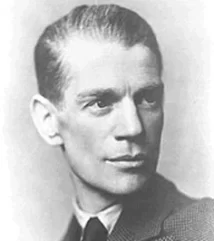James Whale
James Whale was an English film director, theatre director and actor. He is best remembered for his four classic horror films: Frankenstein (1931), The Old Dark House (1932), The Invisible Man (1933) and Bride of Frankenstein (1935). He also directed films in other genres, including what is considered the definitive film version of the musical Show Boat (1936).
In 1931 Universal Pictures signed him to a five-year contract and his first project was Waterloo Bridge (1931). Based on the Broadway play by Robert E. Sherwood, the film starred Mae Clarke. That same year Universal chief Carl Laemmle Jr. offered Whale his choice of any property the studio owned. Whale chose Frankenstein (1931), mostly because none of Universal's other properties particularly interested him and he wanted to make something other than a war picture.
In 1933 Whale directed The Invisible Man (1933), based on the book by H.G. Wells. Shot from a script approved by Wells, the film blended horror with humor and confounding visual effects. It was critically acclaimed, with "The New York Times" listing it as one of the ten best films of the year, and it broke box-office records in cities across America. So highly regarded was the film that France, which restricted the number of theaters in which undubbed American films could play, granted it a special waiver because of its "extraordinary artistic merit". Also in 1933 Whale directed the romantic comedy By Candlelight (1933). He directed Bride of Frankenstein (1935), a sequel of sorts to "Frankenstein", which Whale was somewhat apprehensive about making because he feared being pigeonholed as a horror director. "Bride" hearkened back to an episode from Mary Shelley's original novel in which the Monster promises to leave Frankenstein and humanity alone if Frankenstein makes him a mate. He does, but the mate is repelled by the monster who then, setting Frankenstein and his wife free to live, chooses to destroy himself and his "bride." The film was a critical and box office success. However, his next major project, The Road Back (1937), was a critical and financial disaster, and contributed to his retiring from the film industry in 1941.
Beset by personal, health and professional problems, James Whale committed suicide by drowning himself in the swimming pool of his Pacific Palisades (CA) home on 29 May 1957 at the age of 67. He left a suicide note, which his longtime companion David Lewis withheld until shortly before his own death decades later. Because the note was suppressed, the death was initially ruled accidental.

